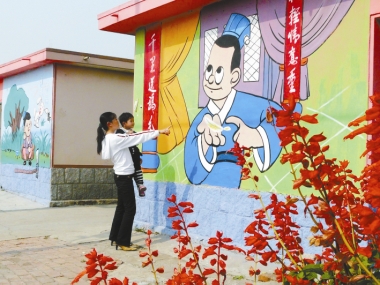 WORK will start this year on a centralized water supply project in rural areas costing 1.81 billion yuan (US$273m) to solve the water problems for 1.56 million people living in Qingdao’s rural areas. This is one of 30 key projects to be promoted in rural areas this year, aiming at building new and modern villages in the city. More than 20 government departments for agriculture, marine and fisheries, agricultural equipment, water, commerce and the environment, are involved in the projects. The centralized water supply project will take three years to complete and cost about 600 million yuan a year. Among the 30 projects, some have already started or will be upgraded. A poject to upgrade the environment in rural areas, which started three years ago, has already made great achievements and 90 percent of the city’s villages have already improved their environment and the city will continue to promote the projects in the rest of the area this year. Since last year, areas such as Chengyang and Jimo have started piloting a pension insurance scheme in rural areas and it will be promoted across the city in areas such as Laoshan, Huangdao, Jiaonan, Jiaozhou, Pingdu and Laixi. More than 2.284 million villagers will benefit from the policy. Among them, 520,000 villagers aged 60 or above will receive a monthly pension. The city’s power company will also upgrade the power grid in rural areas. More electricity projects will be built and more electric supply equipment will be upgraded this year in Pingdu. In all, 150 primary and middle schools and 200 kindergartens in rural areas will be upgraded to meet city standards this year. Qingdao also plans to build or upgrade the Internet network in 200 primary and middle schools in these areas. The city will invest 486 million yuan to reinforce 127 school buildings in rural areas and renew heating equipment, desks, tables and toilets. About 1,000 students from normal universities will be sent to teach at these schools and 500 teachers from these schools will receive training in the city. About 500 volunteer teachers from urban schools will also be sent to teach in these areas. (Wang Yuanyuan, Liu Kunfeng) | 
